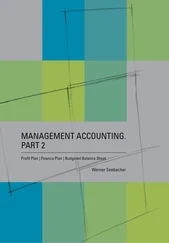I did want my car back. You’d know why, if you’d ever been on the 256k bus. It goes every fifteen minutes on average, apparently managing this by running every two minutes at three in the morning, when there’s no one at the bus stops, and once an hour during daylight hours. All bus passengers have a look of despair, forlorn pale things counting their change in the petrol fumes. Women with six children occupy entire decks, men with Elvis haircuts and their hands in their pockets sit next to you and breathe like donkeys. Everyone smokes rollups. At every other stop someone gets on with the wrong change. They go from seat to seat asking if anyone can change fifty pee. No one admits that they can. Everyone looks out of the windows. Everyone puts a bag on the seat next to them.
A boy with cropped ginger hair and an idiot expression sits in front of you, one seat to the left, with his head turned around, staring blankly at you the whole way home.
I write small computer applications, using Delphi as a front-end for Oracle databases. Databases are logical, until people get near them and put data in. Then they turn into a mess. I write small applications – applets – to allow users to get at the data and fix it. The trick is not to allow them to do anything. The trick is to give them buttons to click on and primary colours. If it beeps at them from time to time they’re delighted. I can program without working at it. It’s something that just clicks with me. I pick up computer languages. I read books about them for fun.
‘You fucking would, you sad git,’ Dermot would say. ‘It’s the only thing you do pick up. You don’t pick up women, that’s for bloody certain. What happened to that Julie? Where’s she gone to? Let me guess, you told her all about fucking operating systems and she went out for cigarettes and never came back? You sad man. Computers. Sad.’
I had a PC at home, a 500 mhz Pentium III with 128 meg on board and a 32-meg TNT2 graphics card. State of the art for a couple of months. I wrote applets on it I could have written on a 486.
You can’t have a slow PC if you’re a programmer. You wouldn’t be able to hold your head up in company. You can have horror stories about the Amstrad you learned on, or how long it took to learn the keystrokes for Spectrum Basic. Remember the Spectrum? Little thing that had rubber keys and four colour-coded shift keys; every other key could have four meanings depending on the combination of shift keys you held down as you pressed it. You have to know about them. You need to have experienced them. But you can’t have a slow PC now unless it’s a spare, wired up as part of your own little LAN or sitting in the corner running an algorithm to find the highest prime number.
My pretty little desktop PC was more powerful than things that filled rooms in the seventies. It could do billions of calculations a second. It could plot millions of points instantly, do four-dimensional trigonometry, produce print-quality images, connect to the Net and kick-start the revolution.
I played games on it.
I have played games on an old ZX Spectrum, and on a Commodore 64, and on an Atari ST and now on a PC that has none of its original components. Everything has been upgraded. Everything has been replaced at least once.
I have also owned a couple of consoles, an old Sega Megadrive with a dodgy converter and a Nintendo 64 that was better than a PC four years ago. I have drawers full of computer games, video games, video-games magazines. I used to read science fiction, all those books about unhelpful robots and alternate universes.
Video games are an alternate universe. Each one is a window onto a new world. They are self-referential like no other art-form, and they started that way. The first widely available game was Pong, marketed by Atari.
Atari – the word – is from a game itself. It’s from Go, and it’s the state a group of stones is in when it has one liberty left, when it’s in imminent danger of capture.
Games are like that. They feed on their own history.
Pong gave you control of a bat; you had to hit a ball with it. The ball was square. Lo-rez was hi-rez at the time. Pong had one control, and three instructions. The best one was:
Avoid missing ball for high score.
Dermot is right.
I am boring about computers.
I met Dermot six or seven years ago. I was on a training course in Birmingham, learning the fundamentals of object-oriented programming. The course was in a small building on a new business park close to the NEC. It was the peak time for new business parks. They were everywhere, and they were all the same. Each one had the small, flat, white building that did computer training, the grey warehouses for furniture companies, the sprawling blocks occupied by new businesses going out of business, the inconvenient out-of-town sorting office. There was a van selling burgers and egg baps. There were signs with arrows in bright primaries. The road names were misleadingly pleasant and rural.
On the first two days of the course, I went to the restaurant for lunch, along with everyone else. It was the usual business park restaurant, with no evening menu and no atmosphere. Secretaries leaned across tables. Men shouted into mobile phones. Nothing meaningful happened. We had scampi that had been constructed from recycled scales, tails and fins. We had French fries made out of anything but potato.
On the third and last day of the course I said I had some work to catch up on at lunchtime. I’d had enough faux scampi. I’d had enough of mobile phones. I went to the burger van. It had been a VW camper once upon a time. It was white under the grime, which was considerable. It was leaning slightly into the road. The tax disc was months out of date. One side of the van had been cut open and brutalized into a serving hatch.
There was no queue. There was no menu.
‘What do you have?’ I asked.
The proprietor looked down at me from behind the crusted sauce bottles. He had black curly hair and a round nose. He looked like a cartoon Irishman, and as it turned out that summed him up pretty well, apart from his accent. His accent was all over the place, and as I soon discovered, he put heavy emphasis on at least one word in almost every sentence.
‘I have fucking burgers , what do you think I have? Truffles?’
‘What sort of burgers?’
‘Cheap ones.’
‘Do you sell many?’
‘Not round here I don’t. They’re all in there, eating really cheap burgers.’ He nodded towards the restaurant. ‘They’re all in the fucking tuck shop. Have you noticed that? It’s like a campus here. It’s like a university. They’ve all got the same clothes. They’ve got tie clips. Fucking tie clips. Jesus.’
He looked at my tie.
‘Did you tie that? Was the light on when you did it? You have to be a computer man.’
I told him I was.
‘Fucker of a day this is turning out to be. Only one customer and he’s a computer man. I’m sick of this. Do you want a drink?’
‘I want a burger.’
‘I’ll give you a fucking burger. It’s your funeral. Then can we go for a drink? They have a bar in there?’
I nodded.
‘Right we are then. Settled. Here.’
He dropped a burger into a bap and passed it to me.
‘Sauce is there if you want it.’
He closed the hatch. I heard a door close on the far side of the van, and then he walked around it. He was shorter than me but not by much, and far more alive. He was more alive than anyone I’d ever met. He was all energy.
I took a bite of my burger.
‘There’s a bin there,’ he said, pointing. ‘Take my word for it, throw that fucking thing into it.’
Читать дальше












